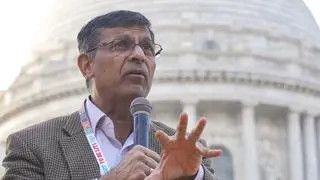Finance Minister Nirmala Sitharaman on Friday underlined that the government is not giving out any confusing signals on cryptocurrencies which are being taxed while consultations on whether to regulate or ban it are still under way.
With the Minister’s reply, the Finance Bill with provisions on crypto taxation among others was passed in the Lok Sabha on Friday.
Crypto players disappointed
Meanwhile, crypto industry players have expressed deep disappointment on not getting any relief on taxation norms. Tax experts feel new taxation norms will cripple the crypto industry. Amendments in the Finance Bill passed by the Lok Sabha include no set off of losses on one crypto from the gain of other crypto, mining not to be part of acquisition cost and TDS/TCS on overall value.
Related Stories
Crypto industry in a spot as FinMin seeks stringent taxation norms
Cost of crypto mining not to be treated as ‘cost of acquisition’On Friday, most of 20 MPs who took part in debate on Finance Bill, raised question on taxation related with cryptocurrencies. Some said there is more confusion now and urged the government not to ban it.
Replying to debate, Finance Minister said: “There is no confusing signal. We are very clear that there are consultations going on as whether we want to regulate it to some extent or really very much or total ban it. Once it is concluded, the matter will come out, but till then we are taxing it also because a lot or reported activity happening,” she said.
Meanwhile, crypto industry fears that the new taxation regime will make the things more difficult for the industry.
Industry’s concern
Nischal Shetty, Founder and CEO of WazirX, said the proposed 30 per cent tax irrespective of whether crypto-assets are capital assets or not will be detrimental to the investor growth that the industry has been seeing so far.
“We firmly believe that there is a need to regulate and tax crypto but in its current form, it is poised to do more harm than good. It will also fail to provide desired results for the government. It can result in cascading participation on Indian exchanges that adhere to the KYC norms and lead to a rise in capital outflow to foreign exchanges or to the ones that aren’t KYC compliant. This is not conducive for the government or the crypto ecosystem of India,” he said.
Probir Roy Chowdhury, Partner with tax advisor firm J. Sagar Associates, says a flat tax of 30 per cent on cryptocurrency gains would result in a 5 per cent increase in tax payable by companies in trading in cryptocurrency. This would more significantly affect smaller ‘retail investors’ who may be in lower tax brackets or have been relying on lower capital gains tax rates.
Further, he said that TCS at the rate of 1 per cent on payments to Indian residents for cryptocurrency transactions will result in a drop in liquidity, as the levy would be imposed regardless of profit or loss. The volatility of many cryptocurrencies has created a burgeoning community of high frequency traders, who will be significantly affected by the drop in liquidity on each trade.
Finally, the biggest setback is prohibition of setting off losses in one cryptocurrency against gains from another. “Such a move could cripple the industry and severely affect traders who rely on hedging to ensure risk mitigation in their investments. Crypto players need to present a united front and challenge these overbearing provisions. Trading in crypto/virtual digital assets in not akin to gambling and this distinction needs to be made clear,” he said.









Comments
Comments have to be in English, and in full sentences. They cannot be abusive or personal. Please abide by our community guidelines for posting your comments.
We have migrated to a new commenting platform. If you are already a registered user of TheHindu Businessline and logged in, you may continue to engage with our articles. If you do not have an account please register and login to post comments. Users can access their older comments by logging into their accounts on Vuukle.